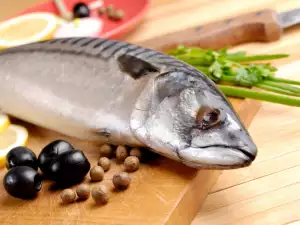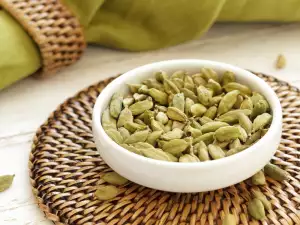The US Food and Drug Administration says that foods containing soy protein can reduce the risk of coronary heart disease.
This claim is based on the commission's finding that 25 grams of soy protein a day as part of a diet low in saturated fat and cholesterol can reduce the risk of heart disease by lowering blood cholesterol levels.
To take advantage of soy protein, the committee recommends including 6.25 g of soy four times a day.
To have a healthy effect, soy products must meet the following criteria:
• 6.25 g or more of soy protein
• Low fat (less than 3 g)
• Low in saturated fat (less than 1 g)
• Low in cholesterol (less than 20 m)

Soy foods are a good source of high quality protein. Moreover, soy protein intake can help treat some chronic diseases. Many studies are currently underway to determine the possible benefits of soy.
Heart health and heart disease
Soy foods containing soy proteins can be great allies in the fight against heart disease, the number one killer of older women and men. More than 40 scientific studies have proven the positive effect of soy protein on lowering cholesterol levels, leading to a reduction in the risk of heart disease. In fact, the Food and Drug Administration recommends eating 25 grams of soy protein each day as part of a diet low in saturated fat and cholesterol. One serving of soy milk provides 7 g of soy protein, roasted salted soybeans have 12 g and soy cheeseburger - 9 g of healthy soy protein.
Omega-3
Certain fatty fish, such as salmon and tuna, are the best source of healthy Omega 3 fatty acids. But certain plant-based foods, such as flaxseed and soy, also contain these fatty acids. Soy is one of the best non-fish sources of Omega 3 fatty acids, which can help reduce the risk of coronary heart disease. Compared to other legumes such as pinto or white beans, soy has a higher fat content containing healthy Omega 3.
Blood pressure and soy
Soy protein can have a positive effect on people with high blood pressure. According to a recent study, researchers found that both systolic and diastolic blood pressure decreased in middle-aged women and older people if they ate at least 25 grams of soy protein a day. Since supermarkets and specialty stores are currently full of a variety of soy foods, eating 25 grams of soy a day is easy. Start with soy cereal (8 g soy protein). Add soy chips for lunch (7 g soy protein). For afternoon breakfast, eat soy waffle (10 g soy protein) and you will have 25 g soy protein.
Menopause
Although soy protein may not help normalize hot flashes for menopausal women, it has other proven effects in similar cases. Scientists have found that consuming soy protein before and after menopause can prevent weight loss and brittle bones. Because menopausal women are at risk for osteoporosis, it is very important for them to keep their bones healthy.
In addition, soy protein can help reduce the risk of heart disease, another major problem after menopause.
Pregnancy and Omega-3
The link between Omega 3 fatty acids and a healthy heart is well established. But there is another reason to eat more Omega 3 and it affects mothers and daughters.
A new study shows that mothers who eat foods rich in omega 3 fatty acids during pregnancy (and breastfeeding) can significantly help reduce the risk of their daughters developing breast cancer later. The study also shows that the intake of these fatty acids in childhood and adolescence may continue to help against breast cancer.
Oily fish such as tuna, salmon and mackerel are the best sources of Omega 3 fatty acids. Other sources are nuts, flaxseed and soy.

Breast cancer
Including soy foods in young girls' diets can protect them and reduce their risk of breast cancer. Although there is no evidence that eating soy protein as an adult helps prevent breast cancer, research shows that consuming it as a teenager reduces the risk by nearly 50%. Impressive results are achieved by eating only 11 grams of soy protein per day. 11 grams of soy protein contains one serving of sweet roasted soy or two servings of soy chips.
In addition to reducing the risk of breast cancer, foods rich in soy protein provide us with a healthy heart and bones.
Cancer and soy isoflavones
Medical studies show that high-fiber foods and phytochemicals and low-fat, can help reduce the risk of developing certain cancers. Eating soy foods can be helpful in reducing your risk of cancer, because many soy foods are not only high in fiber and low in fat, but also contain phytochemicals called isoflavones.
Isoflavones are natural compounds in plants that, according to many medical studies, reduce the risk of breast, prostate and colon cancer.
Prostate and colon cancer
The same foods that can reduce the risk of heart disease can often prevent the second most common tumor in men. Medical research shows that foods rich in soy protein can protect against prostate cancer by helping to heal prostate tissue. Although a recommended amount of soy protein has not yet been determined, adding one soy food to the daily menu would be helpful.
Colon cancer
According to recent medical research, several of the natural ingredients in soy can help prevent colon cancer, the second leading cause of death in the United States. Soy ingredients that can help are called isoflavones and saponins. Both are found in soy foods such as soy milk, soy nuts, green and yellow soy.
Many soy foods are not only a good source of isoflavones and saponins, but are also rich in fiber, also associated with reducing the risk of cancer.
Limiting fatty foods can also help reduce the risk of colon cancer. Replacing fatty high-protein foods with soy burgers or tofu will help.
Diabetes
Soy protein can be beneficial in several ways for diabetics, making the inclusion of soy foods in the diet very important.
First, many soy foods have a low glycemic index. They maintain a more stable blood sugar level and thus make diabetes easier to control. Soy foods such as canned soybeans and frozen green soybeans have a lower glycemic index than others.
Second, many soy foods are rich in milk fiber and fiber also helps stabilize blood sugar levels. Everyone, including people with diabetes, should aim to eat at least 25 grams of fiber a day. Roasted soybean seeds have 6 g of fiber and soy burger - 4 g.
In addition, soy foods help control one of the most common complications of diabetes - heart disease.



















Comments